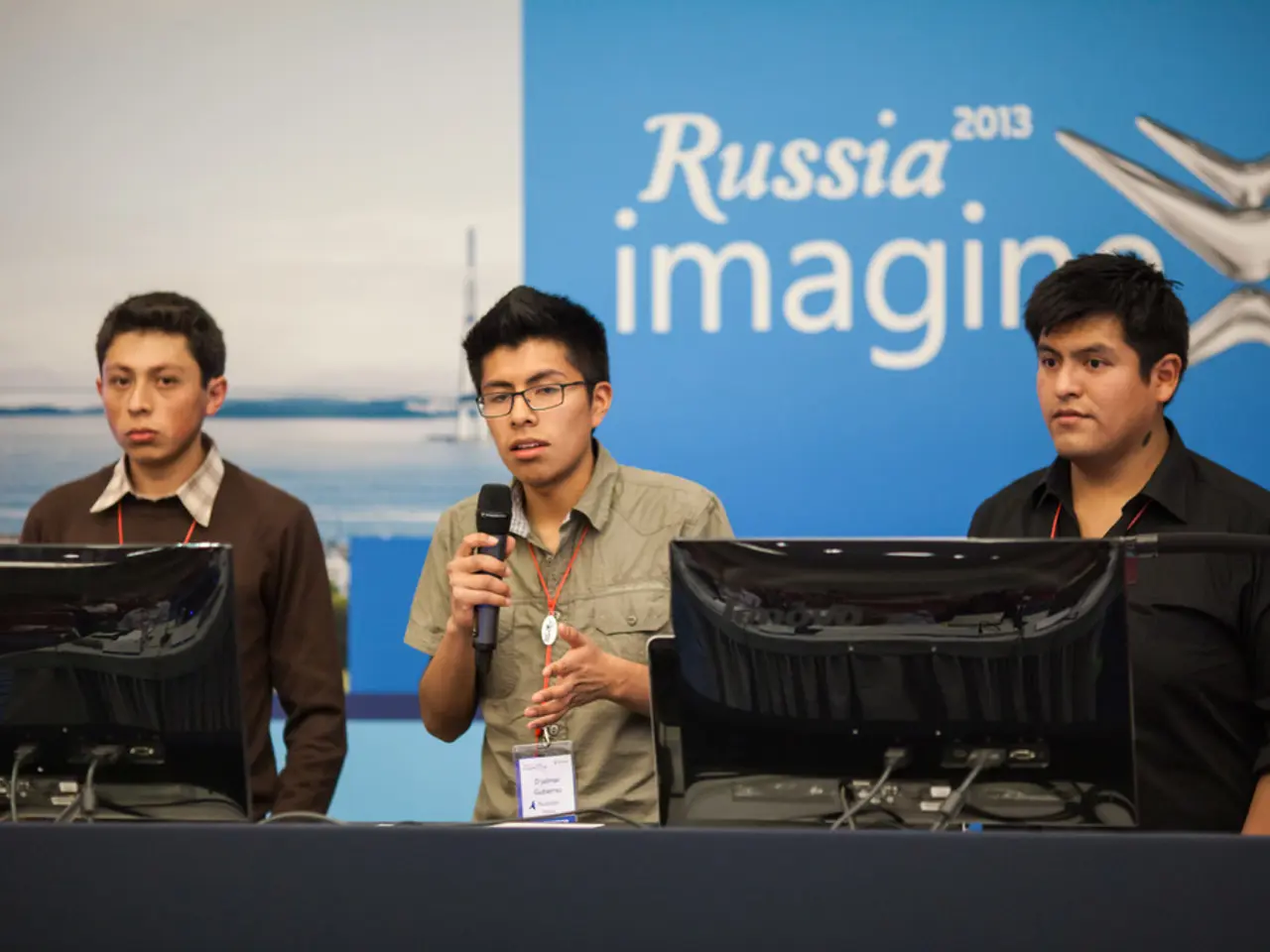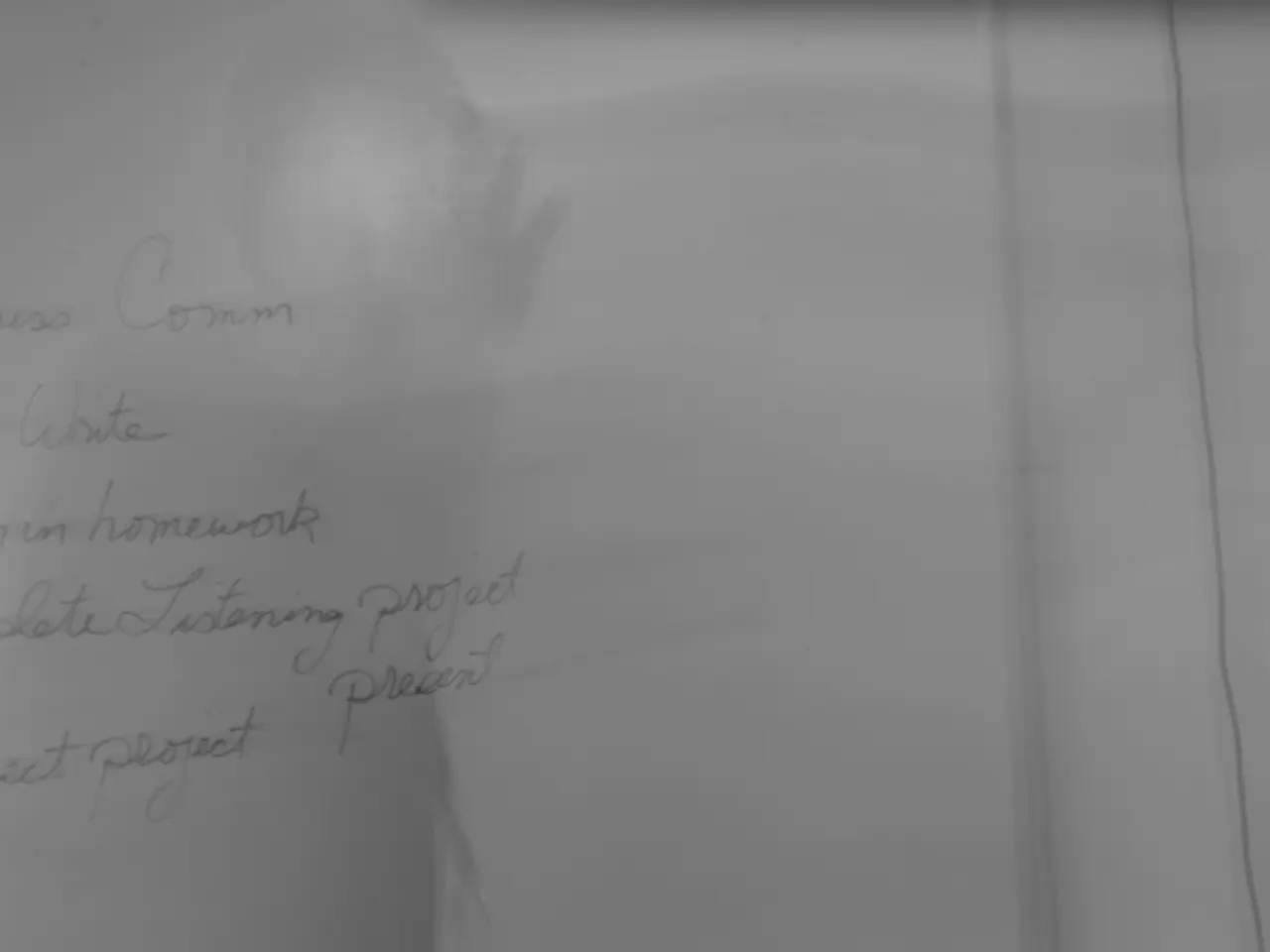Looming deadline for Trump on Kremlin negotiations amidst Putin's persistence in withstanding compromise
President Trump's special envoy, Steve Witkoff, recently met with Russian President Vladimir Putin at the Kremlin on August 6, 2025, as part of ongoing diplomatic efforts to end Russia's invasion of Ukraine[1][2]. This visit marked Witkoff's fifth trip to Moscow since Trump took office and symbolizes White House attempts to negotiate an end to the conflict, which began in February 2022[1].
Trump had set a deadline for a Russian ceasefire by August 8, 2025, threatening additional economic and secondary sanctions on Russian fossil fuel buyers, including major countries such as India and China, if Russia did not comply[1]. Despite this, Russia continued to carry out high levels of drone and missile attacks on Ukraine in July 2025, setting a new monthly record of 6,443 strikes[1].
The meeting’s significance is underscored by Putin’s gesture of awarding Witkoff with a Soviet-era honor traditionally linked to the Order of Lenin, which was perceived as a provocative act toward the U.S. and symbolic given its association with past Cold War tensions and Russian patriotism[3].
President Trump has expressed frustration with Putin's stance and the course of the war, publicly criticizing the continuation of hostilities and threatening sanctions but also showing skepticism about their effectiveness[2].
Ukrainian President Volodymyr Zelenskyy has urged the United States, Europe, and other nations to impose stronger secondary sanctions on Moscow's energy, trade, and banking sectors[4]. Ukraine has also developed technology that allows it to launch long-range drone attacks deep inside Russia[5].
Kremlin spokesman Dmitry Peskov has expressed readiness to meet with Trump's envoy[6]. However, the secondary sanctions proposed by Trump could complicate Washington's relations with China and India, who are accused of helping finance Russia's war effort by buying its oil[6].
Recent developments in the conflict include an attack by Ukraine on an oil depot near Russia's Black Sea resort of Sochi, starting a major fire[7]. In response, Putin stated that the use of several Oreshnik missiles in one conventional strike could be as devastating as a nuclear attack[8]. Trump has ordered the repositioning of two U.S. nuclear submarines in response to what he called the "highly provocative statements" by former Russian president Dmitry Medvedev[9].
Russia's bigger army has made slow and costly progress on the 1,000-kilometer (620-mile) front line, carrying out a sustained operation to take the eastern city of Pokrovsk[10]. Putin claims that Russia's new hypersonic missile, the Oreshnik, cannot be intercepted[11].
As of early August 2025, no breakthrough ceasefire has been confirmed, with the situation remaining tense and conflict ongoing[1][2].
References: 1. New York Times 2. BBC News 3. Reuters 4. AP News 5. CNN 6. Bloomberg 7. NBC News 8. CBS News 9. CBS News 10. Associated Press 11. The Guardian
- Advanced technology, such as long-range drones developed by Ukraine, is being used in the ongoing conflict between Ukraine and Russia, raising concerns about escalating war-and-conflicts tensions.
- The current political impasse between President Trump and Russian President Vladimir Putin, over Putin's stance on Ukraine, has resulted in increased scrutiny of the impact of politics and general-news events on technology sales, particularly fossil fuel purchases from Russia in cities like Seattle.






